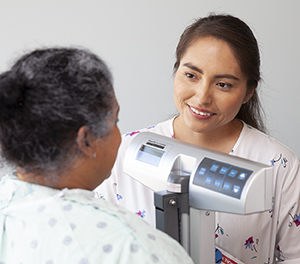Finding Your Ideal Weight
Most of the people in magazines and on TV are far slimmer than average, yet this is the “ideal” that many people aim for. Before you decide that you won’t be happy until you get down to a certain number of pounds, consider:
-
Your age. You probably wish you could get back to your college weight. But normal changes in metabolism and hormone levels that occur with aging can make this more difficult.
-
Your gender. In general, men have more muscle and heavier bones than women. That means that healthy men usually weigh more than healthy women of the same height.
-
Your current weight. If you are very heavy, focus on losing a smaller amount (such as 10% of your body weight). Losing just 5 to 10 pounds can improve your health.

Your body fat percentage
A pound of muscle weighs the same as a pound of fat, but it takes up less space. Think of a trained athlete and a “couch potato.” Even though they may be the same height and weight, the athlete looks fitter and is healthier. They also probably wear a smaller size of clothing. If you are muscular, a body fat test may be a more accurate measure of your ideal weight than the bathroom scale. Talk with your healthcare provider, who can help you set appropriate goals for yourself.
Body mass index (BMI)
Your BMI is a number calculated from your weight and height. BMI is used as a health risk screening tool. It does not diagnose amount of body fat or actual health of a person. To calculate your BMI, see this BMI calculator from the CDC at www.cdc.gov/healthyweight/assessing/bmi/adult_bmi/english_bmi_calculator/bmi_calcula.tor.html.
© 2000-2024 The StayWell Company, LLC. All rights reserved. This information is not intended as a substitute for professional medical care. Always follow your healthcare professional's instructions.